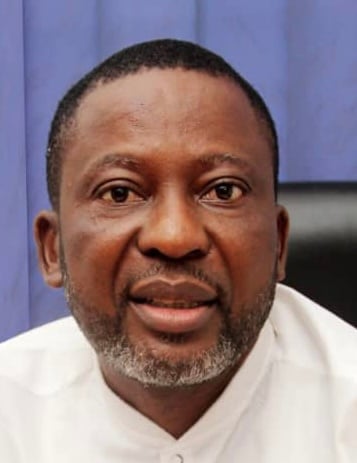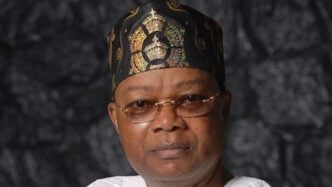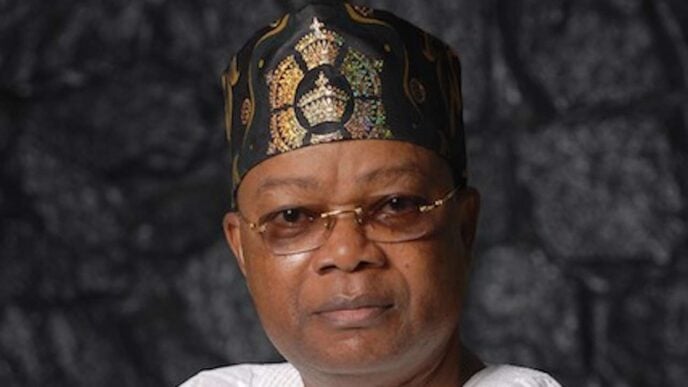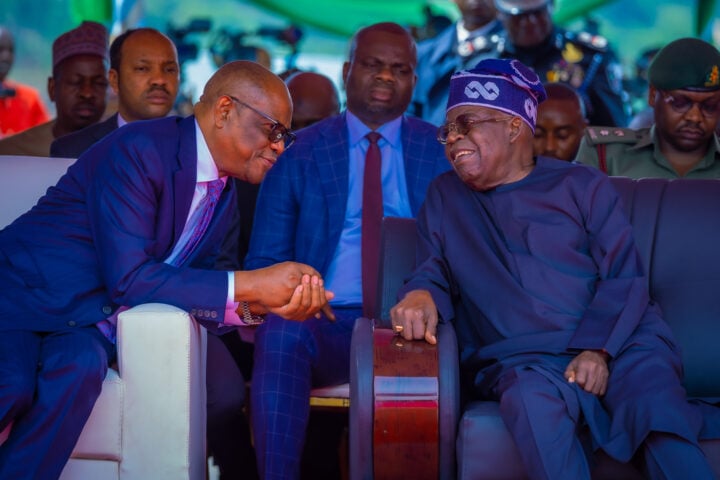Every election season in Africa particularly Nigeria, echoes with a desperate cry for good leaders, redeemers, and miracle-working saviours to rescue the nation from despondency.
Campaigns overflow with promises of integrity, reform, and transformation. But the real power to shape leadership outcomes positively or otherwise doesn’t lie in the candidates alone, it rests majorly with the followers.
In a democracy, numbers rule, and the majority if credible, enlightened, and politically conscious can demand and drive real change. Yet, when this followership is misinformed, transactional, or complicit, even the best intentions collapse under the weight of a corrupt system.
The brutal irony however is that followership most times is steeped in corruption, tribalism, and transactional politics, while hoping to birth saints from the very system it enables and defends.
Advertisement
The question isn’t where the good leaders are; it’s whether the society that produces them even want good leaders.
This contradiction forms the paradox of Nigeria’s leadership crisis, a society riddled with broken values expecting angelic leaders. It is like planting thorns and expecting roses to bloom.
Democracy thrives not only on the legitimacy of elections but also on the vigilance of the electorate. Nations like Norway, Canada, and Germany exhibit strong, transparent leadership not because of extraordinary politicians, but because of the strength of their civic culture.
Advertisement
In these countries, citizens are educated, engaged, and empowered. They demand policies, question authority, protest injustice, and vote on issues not emotions.
From local government offices to the highest rungs of governance at the centre, Nigeria is plagued by a leadership problem. But what’s less discussed is that these leaders are not aliens, they emerge from the same communities where citizens bribe to get ahead, inflate figures to win contracts, or offer money to bypass due process. The same parents who lecture their children on integrity also pressure them to cheat in exams to secure the future. The hypocrisy is both cultural and systemic.
The need for enlightened followership is more urgent than ever. For decades, Nigeria’s leadership failures have been attributed to a string of corrupt or incapable leaders. Yet, this diagnosis only scratches the surface.
The deeper question is: who enabled them? Who cheered them into power, turned a blind eye to their past, or demanded ethnic or religious allegiance over merit?
Advertisement
The uncomfortable truth is that poor followership characterized by ignorance, blind loyalty, and political illiteracy has fertilized the ground from which subpar leaders emerge.
The reality is that bad leadership is the fruit borne from the soil of society and shaped by its values, influenced by its culture, and molded by its expectations. When a society tolerates, even celebrates shortcuts, dishonesty, nepotism, and mediocrity, it should come as no surprise when those same traits show up in the corridors of power.
Where over 150 million citizens live in multidimensional poverty, political awareness takes a back seat as people think first of survival. Politicians exploit this desperation with tokenistic handouts during campaigns.
Many citizens view elections as transactions, not a democratic process with long-term consequence. And until this perception changes, power will always go to the highest bidders.
Advertisement
Leadership is not merely the product of ballots, constitutions, or party manifestos, it is a mirror, a reflection of the collective values, knowledge, priorities, and moral fabric of its people. When nations are governed by enlightened, informed, and politically engaged citizens, the quality of leadership naturally rises.
Conversely, where ignorance, apathy, and transactional relationship dominate the populace, leadership often degenerates into tyranny, corruption, and incompetence. Africa, and particularly Nigeria, offers a sobering case study of this reality.
Advertisement
True reform rarely starts in government houses; it often begins with enlightened citizens. The civil rights movement in the U.S., led by ordinary but informed citizens, forced systemic change. In Tunisia, the Arab Spring was triggered by a single act of defiance from a frustrated vendor, but sustained by masses who had reached a tipping point and could not stomach bad leadership and the attendant suffering.
Even in Nigeria, rays of this civic light are emerging. The #EndSARS movement in 2020 signified a new wave of youth-led civic awakening. Though brutally suppressed, it illustrated the potential of an informed and organized followership to challenge the status quo.
Advertisement
NGOs, investigative journalists, and youth-led platforms like BudgIT, Enough Is Enough (EiE), and SERAP are beginning to redefine the civic space, demanding transparency and people- centered governance.
Every four years, many Nigerians cast votes not based on vision, character, or record but along lines of tribe, religion, or personal gain. Politicians, knowing this, do not offer substance. They offer stomach infrastructure, distribute wrappers, or promise to “carry the people along, a euphemism for patronage and favoritism. The tragedy is that many citizens do not vote to hold power accountable, but to partake in it.
Advertisement
The question then arises: can a society that does not value excellence produce excellent leaders? Can a population that is largely uninformed, uncritical, and transactional hold leaders to standards it does not hold itself?
One of the gravest misconceptions in African political discourse is the belief that a society can somehow stumble upon saintly leaders amidst a sea of moral decay.
But history shows that great leaders often emerge in societies that demand greatness. They are held accountable by institutions, pressured by informed electorates, and challenged by vibrant civic cultures.
Countries like Finland, New Zealand and Denmark are nations lauded for transparent, people centered governance. Their leaders are not superhuman. They are products of systems that reward honesty, competence, and public service. These societies don’t just hope for integrity; they demand it, enforce it, and live it.
In Nigeria, the pattern is disturbingly predictable. A new leader emerges with a promise to change everything. For a while, hopes soar, but then, the system swallows him, either through compromise or confrontation and the cycle of disillusionment resumes.
Meanwhile, the same citizens who decry corruption are often complicit in the very acts they condemn when given the chance.
Until the people undergo an inner reformation, leadership will remain a tragic reflection of the society: flawed, self-serving, and stuck in a loop of failure. The real transformation, therefore, must begin from the ground up: with the family, in classrooms, through the media, and in everyday interactions.
Being an enlightened citizen goes beyond formal education. It encompasses civic literacy, ethical reasoning, historical awareness, media literacy, and the ability to question, critique, and engage power structures constructively.
Such citizens do not wait for government to change their lives, they initiate, innovate, and influence it from bottom to the top.
In Rwanda, for instance, post-genocide recovery wasn’t achieved by leadership alone. A culture of discipline, self-reliance, and civic duty were reignited among the people. Community based justice systems like Gacaca courts and citizen driven development efforts helped rebuild trust and accountability.
The success of this model underscores the truth: leaders cannot act beyond the consciousness of the people they serve.
Leadership, no matter how well intentioned, will always mirror the values, awareness, and resolve of the people.
If followers are passive, uninformed, and ethically compromised, leaders will exploit that void.
Nigeria and Africa’s hope lies not in few saviours, but in millions of torchbearers who, with clarity and courage, light the path of accountability and progress. When the people rise in knowledge and conviction, even the most obstinate regimes must listen.
As the 2027 elections approaches, what Nigeria needs is not just a change of guard at the top, but a change in the moral compass at the base. A new kind of followership; enlightened, informed, ethical, and courageous have to emerge.
We must stop expecting saints from the same society that excuses corruption as “being smart” or claps for fraudsters because they brought the money home. We must teach integrity not just as a concept, but as a culture.
We must build systems that reward merit, punish wrongdoing, and give power back to the people not through slogans, but through consistent civic action.
It is time to flip the script from asking who will lead us, to asking how we will lead ourselves. Only then can we move from the shadows of dysfunction into the light of lasting transformation.
In the end, leadership is a mirror. What it reflects is the true image of the people it leads. If we want better leaders, we must become better citizens and followers.
The tragedy is not that saints are rare in leadership; the tragedy is that our society has stopped producing them.
Until that changes, we will continue to elect not the leaders we need but the ones we deserve.
Okoronkwo, a leadership and good governance advocate writes from Lagos and can be reached via [email protected]
Views expressed by contributors are strictly personal and not of TheCable.










